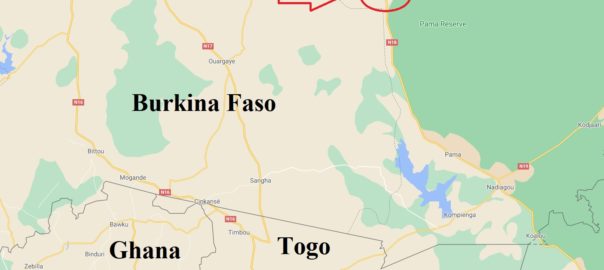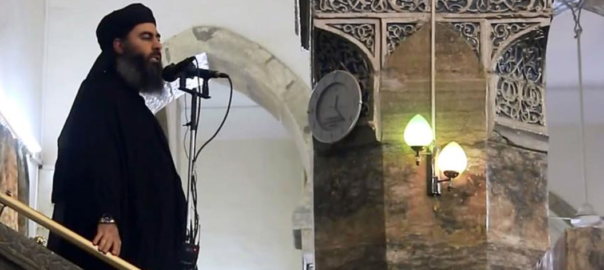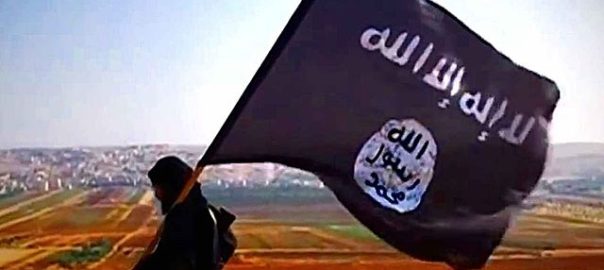Martedì 27 aprile il Ministero degli Esteri spagnolo rendeva nota la morte dei reporter David Beriain e Roberto Fraile, uccisi in un attacco perpetrato da presunti jihadisti nel sud-est del Burkina Faso; nell’assalto rimaneva ucciso anche il cittadino irlandese Rory Young, a capo dell’organizzazione Chengeta Wildlife, molto attiva nell’anti-bracconaggio in tutto il Continente nero. Continue reading
Tag Archives: ISIS
Brahim Aouissaoui’s radicalization might have very well occurred back in Tunisia – by Giovanni Giacalone
In the early morning of October 29th, 21-year-old Tunisian citizen Brahim Aouissaoui entered the Notre-Dame Cathedral on Avenue Jean Medecin in Nice, stabbed three people to death, and partially beheaded one of them, an elderly woman. Continue reading
Terror in Vienna: a risk assessment perspective – by Jörg Peschak
On the night before the second lockdown on November 2nd, 2020 at 8 pm, Austria’s capital was hit by a terrorist attack. On the macrolevel, it is the latest of a series of events that began in France with the republication of the caricatures of Charly Hebdo followed by the beheading of a teacher for showing the caricatures and an attack on people at the cathedral in Nice. Now the scene moved to Vienna. But why Austria? Could it have been prevented? Continue reading
Three generations of jihadist preachers in Italy compared – by Alessandro Boncio
Introduction. The period of jihadi terrorism that Western countries are experiencing currently, could be labelled as a moment of reshaping and transformation. Following the collapse of its Syrian-Iraqi creature, ISIS is repositioning itself physically and ideologically; at the same time, al-Qa’ida linked groups are constantly strengthening its files and ranks, still strong of its cultural appeal[2]. Continue reading
Cyberwar: atomizzazione della rete e minacce ibride – by Francesco Balucani
La nascita di Internet, originariamente inteso come strumento di empowerment per la comunità scientifica, e lo sviluppo progressivo di una dimensione cibernetica sempre più estesa e ramificata, hanno imposto degli sforzi originali da parte degli Stati nazione per assicurare la sicurezza nazionale nella cosiddetta quinta dimensione della conflittualità. Continue reading
Tajiki in Germania – by Giovanni Giacalone
Una cellula dell’Isis composta da cinque cittadini tajiki tra i 24 e i 32 anni sono stati arrestati in Germania. Stavano progettando attentati contro obiettivi militari statunitensi e nei confronti di un individuo indicato come “critico dell’Islam”. Continue reading
The legacy of the “caliph”. Opportunities and vulnerabilities in the post al-Baghdadi Islamic State – by D. Plebani
Continuity is essential in every organization, including terrorist groups. This principle seems to be crucial for Islamic State (IS), bound since its beginning to the idea of a “caliph” according to its interpretation of the “methodology of prophethood”[1]. Continue reading
L’eredità del “califfo”. Scenari e vulnerabilità di Stato Islamico dopo al-Baghdadi – by Daniele Plebani
La continuità del potere è un aspetto fondamentale nella gestione di ogni organizzazione. (Go here for the English version.) Questo principio risulta tanto più importante per il gruppo Stato Islamico, configurato intorno all’idea stessa di “califfo” secondo una propria interpretazione della “metodologia dei profeti”[1]. Continue reading
Lo Stato Islamico e l’espansione in Africa Centrale – by Daniele Plebani
Stato Islamico (IS) ha annunciato la formazione di una nuova provincia, Central Africa. Questo è avvenuto successivamente alla rivendicazione tramite l’agenzia Amaq del primo attacco perpetrato dal gruppo nella Repubblica Democratica del Congo giovedì 18 aprile.
Jihad e Balcani, verso una nuova fase della minaccia – by Giovanni Giacalone
Lo scorso 13 gennaio le autorità serbe hanno arrestato in Sangiaccato il 21enne Armin Alibasic, legato ad ambiti salafiti e wahhabiti della zona di Novi Pazar e accusato di essersi attivato per organizzare un attentato contro il presidente russo Vladimir Putin, in visita a Belgrado lo scorso 17 gennaio assieme a una delegazione. Continue reading
“Terror globalization” in New Year’s Eve: The Tokyo and Manchester attacks – by Maria Alvanou
New Year’s Eve was- as expected- a difficult time for security officials worldwide, trying to make sure that the festive celebrations would not be marred by a terror attack. Despite all efforts, two attacks, one in Japan and one in the UK took place and each of them is important for different reasons. Some first comments while the law enforcement research is ongoing are the following: Continue reading
Twitter a 24 ore dall’attentato di Strasburgo – by Filippo Tansini
Twitter è diventato, quasi per definizione, la piattaforma social di immediata fruizione; per questa ragione utilizzato nella comunicazione di crisi al fine di raggiungere velocemente i cittadini in pericolo. È stata perciò condotta una analisi esplorativa dei messaggi pubblicati nelle prime 24 successive all’atto terroristico compiuto nella notte dell’11 dicembre a Strasburgo. Continue reading







